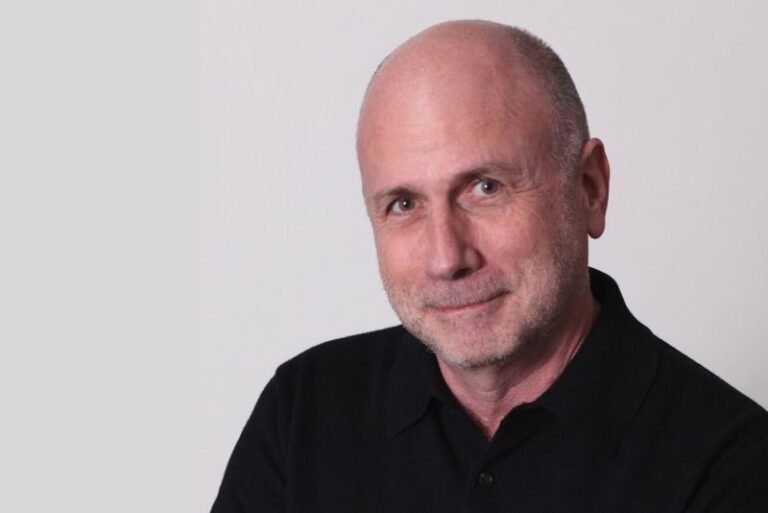We are happy to feature our recent interview with Erich Joachimsthaler, founder and CEO of marketing consulting agency Vivaldi Partners. We had the opportunity to ask him 10 questions about marketing and branding and are pleased to share his insightful answers!
#1 The Branding Journal: First of all, what is your story?
Erich Joachimsthaler: I’ve had the privilege of working in business around the world during times of significant change. I’ve seen three major digital transformations that have significantly disrupted how business and brands create value, drive innovation, grow, and prosper.
The first transformation goes back to the 1970s and 1980s; the early days of computing. The second transformation started around the mid-1990s with the Internet’s emergence. Today, we are on the brink of the third transformation.
Unlike previous transformations, this new digital transformation not only makes organizations and businesses more effective and more efficient, but it empowers a new consumer – the Always-On Consumer as we call it at Vivaldi Partners Group. This can also be referred to as the empowered consumer. It changes branding as we know it.
I love to study, research and think about how technology changes consumers’ lives. I’m also compelled by how companies, businesses and brands must respond and react to these changes. I focus on helping clients build strong brands, drive their innovation and growth, and improve their overall marketing practices. This has been my journey and story. I feel extremely lucky to be here today and have the opportunity to continue to study, observe and make the changes companies or brands need to in order to prosper in today’s era of digital Darwinism.
#2 TBJ: What is the singularity of Vivaldi Partners Group, and what led you into entrepreneurship?
E.J: Vivaldi Partners Group is a global strategic consulting firm that deeply understands demand and growth opportunities from a customer and consumer perspective. We use this knowledge to help our clients connect with customers, drive innovation, continue to grow and build a strong brand. We continuously write the next chapter of how brands are built and how businesses prosper.
I am a former academic, which is a beautiful way to spend a lifetime or career. But entrepreneurship is much more. Being an entrepreneur is about doing and acting. It is about having dreams beyond means, and it is about making things happen.
Every person who has a chance to be an entrepreneur should count himself or herself lucky. It is a fulfilling life.
#3 TBJ: What is the biggest challenge for a branding consulting firm nowadays?
E.J: We are currently living in a significant time period with an upheaval of how brands are being built, how marketing is done, and how companies connect with consumers. The principles of proactive brand management have been laid down over the last decades. We are now in the midst of working on a new paradigm of building strong brands based on technology, data and analytics. A firm like Vivaldi Partners Group needs to relentlessly invest and continuously innovate in this new world. It can only do so if a branding firm can also attract the smartest, most talented and most ambitious people.
#4 TBJ: How would you define branding?
E.J: A brand is a means of creating enormous value to companies and to consumers. Even though it’s an intangible asset of a firm, it is the second most important asset other than people.
Brands are assets that reside in consumers’ mind. That is why it is hard to manage brands. Consumers own brands, not companies.
#5 TBJ: How do you see the contribution of brands in creating economic value and growth for firms? Did this change over the past years?
E.J: In the past, brands used to be built around products. They used to communicate qualities or functionalities. Some communicated emotional benefits to consumers or self-expressive benefits usually via advertising. Communications and messaging were the levers in this communication process, usually delivered in the world of print or TV. When it worked well, it differentiated brands. Consumers would think, “BMW makes me feel cool. Mercedes makes me look successful.” Economic value was created for firms by consumers who were willing to pay a premium for brands that had the qualities or values they desired.
Today, brands are built in entirely new ways. The end result might be the same, but now there is more substance. BMW still makes me feel cool, but now BMW solves my mobility challenges living in a city. It delivers an entire portfolio of mobility solutions with the new BMW i3 and i8. Brand values are no longer just communicated; they are delivered and experienced. The idea of creating remarkable products for consumer’s attention is something that has passed the expiration date.
Brands like Burberry, Uber, Google, or BMW deliver new values because they understand consumers and use data and technology to become innovators in their industry.
#6 TBJ: Do you see a difference in the importance of branding between B2C and B2B companies?
E.J: There are significant differences between branding for B2C and B2B. In the end, both still need to appeal to a consumer. Many B2B companies face the challenge of having to understand the customer, and also the consumer. In every market, there is a price market and there is a quality market. If you just want to sell to procurement and purchase at the lowest price, then you can build a huge and respectable volume business in the short-run. But if you want to build a profitable business that endures over time, you need to offer something that represents additional value.
Consider for example selling paper or packaging to a large consumer goods company such as Unilever or Procter & Gamble. These firms use a lot of paper and packaging to sell their products to consumers. If you want to sell paper and packaging to procurement, you must deliver quality paper and packaging at a reasonable price. But over time, you will end up competing in a commodity hell. Sooner or later, someone will offer the same qualities as you but at the lower price.
However, if you deeply understand the customers’ customer, namely the consumer, you should instead offer Unilever or Procter & Gamble a solution that helps position their brands and products to effectively compete. In turn, you will become enormously valuable to your customer while also building your B2B brand.
#7 TBJ: What branding project has challenged you the most so far in your career?
E.J: Over the years, I have worked with a number of companies such as Kodak, Nokia, Siemens Mobile, Sears and Circuit City. These companies, and others like Blackberry or Blockbuster, all had great brands. However, branding alone did not solve their challenges.
I believe that branding is a great discipline. However it is just one of several leadership disciplines that executives need to master today in order to address the challenges of digital Darwinism.
#8 TBJ: If you had to choose one brand that excelled in its marketing strategy, which one would it be?
E.J: Nike is the first that comes to mind, but there are many others such as LEGO, Patagonia, Netflix and Uber who have all excelled too. Nike has proven to be wickedly successful across many decades of brand building all while marketing has changed enormously during these times.
You are the author of more than 40 articles and case studies in leading academic and business journals. May I ask which one is your favorite marketing case study and why?
I wish there was the one single case study, but there isn’t. In the last few years, I’ve written about Burberry because of how the 2006 business strategy created by Angela Ahrendts and Christopher Bailey was executed. It is a great example of a marketing strategy with a very powerful digital foundation at its core. The case is interesting because it shows the power of marketing more than just meeting consumers’ needs or building brands. The campaign highlights a potentially rethinking of the entire industry value chain, while challenging industry orthodoxies and conventions, and driving hugely profitable growth.
#9 TBJ: How do you inform yourself about trends and how do you keep your marketing knowledge up-to-date?
E.J: When I was a student, one of my professors, John Lastovicka, termed the phrase: “information catching.” I feel that’s probably the best way to stay ahead of trends. I am like a big sponge with my surroundings. I have an obsessive interest in the changes in the outer world and today’s media. As CEO of Vivaldi Partners Group, I also have the privilege of working with many great companies who either employ or hire the best people. I like to soak it all in to experience everything to the fullest extent.
#10 TBJ: What is your best professional advice for a brand strategist?
E.J: A quote often attributed to Steve Jobs – “Stay hungry, stay foolish.” I strongly believe branding creates enormous value for companies, but the levers to create value are changing. Over the next several years, the principles of creating strong brands will be rewritten. Engage, and take part in this effort, that’s my advice. It will be an enormously rewarding and exciting journey.
–Many thanks for your time and insights Erich! All the best from The Branding Journal.
ABOUT ERICH:
After a career of 15 years in academics and extensive professional work experience in several large multinational companies, Erich founded Vivaldi Partners. He is actively engaged in many consulting projects for leading companies and brands. In addition to his consulting work, Erich does extensive research on global brands and the formulation of corporate and business-unit level strategies. A sought-after speaker, he also conducts executive-level conferences and workshops around the world in English, German, and Spanish.
Erich is a published thought leader and his book Brand Leadership, co-written with David A. Aaker and translated in 14 languages, is considered a groundbreaking discussion on the recent developments in brand strategy. He has just completed a new book, Hidden in Plain Sight, that focuses on the role of brands in creating economic value and growth for firms. Erich is also the author of more than 40 articles and case studies in leading academic and business journals, including Harvard Business Review, Sloan Management Review, and Business Week.
Erich has held academic faculty positions in the US and Europe and taught in various executive programs in Latin America, Asia and Africa. He holds masters and doctorate degrees from universities in Germany and the U.S., and completed his education with a Post Doctorate Fellowship at Harvard Business School.









